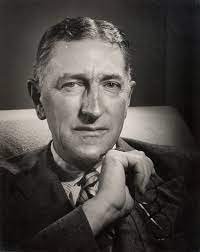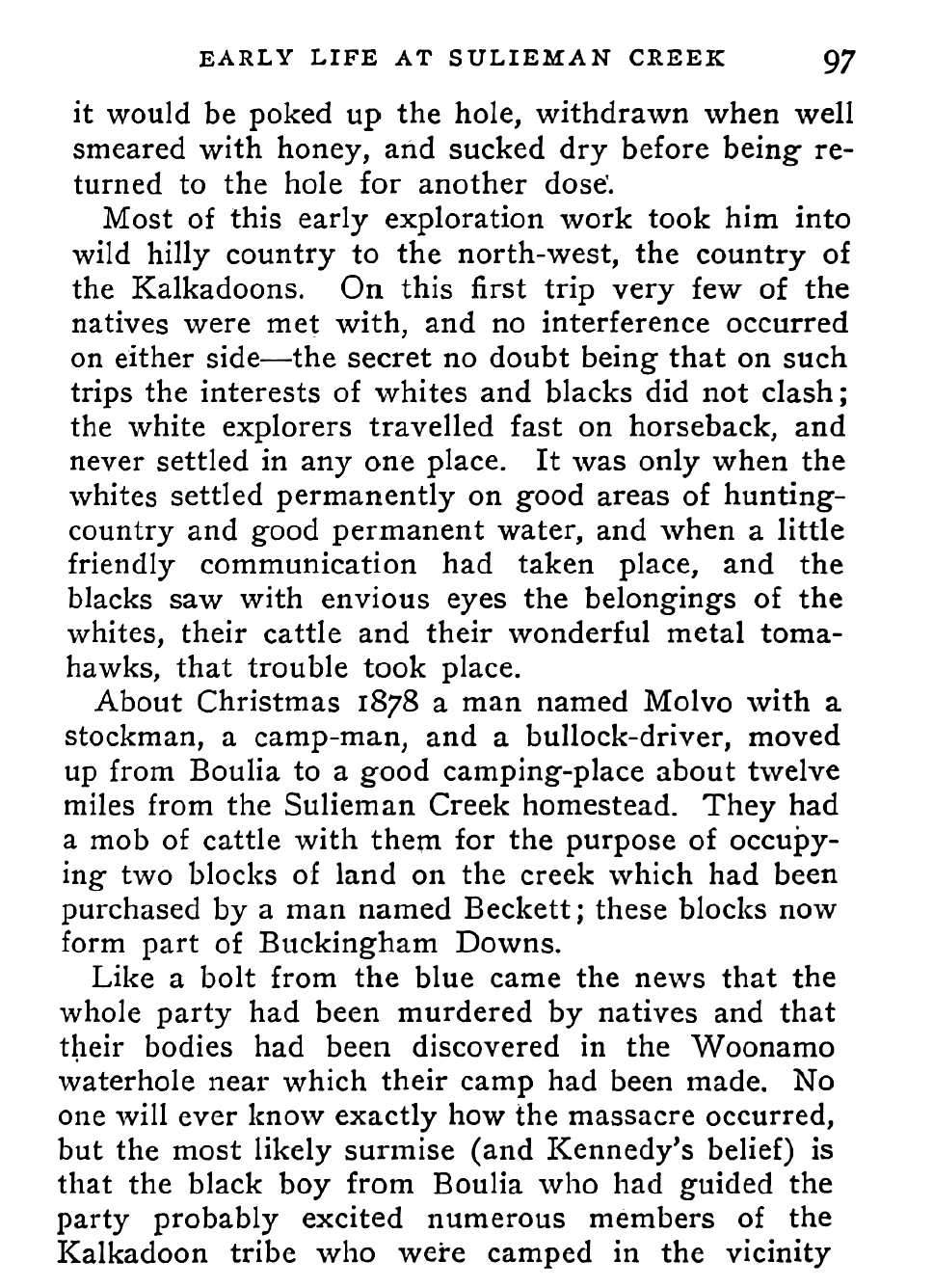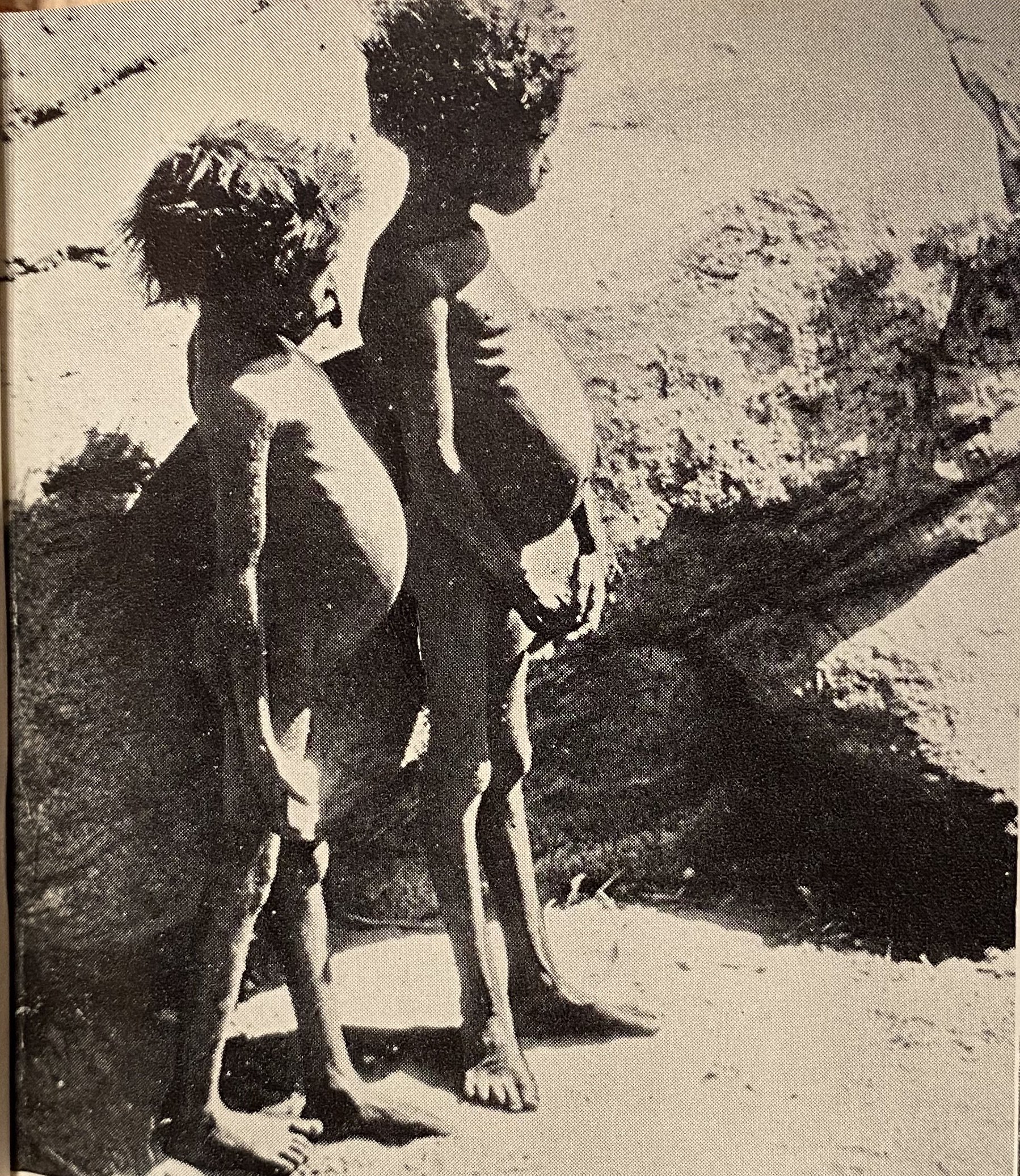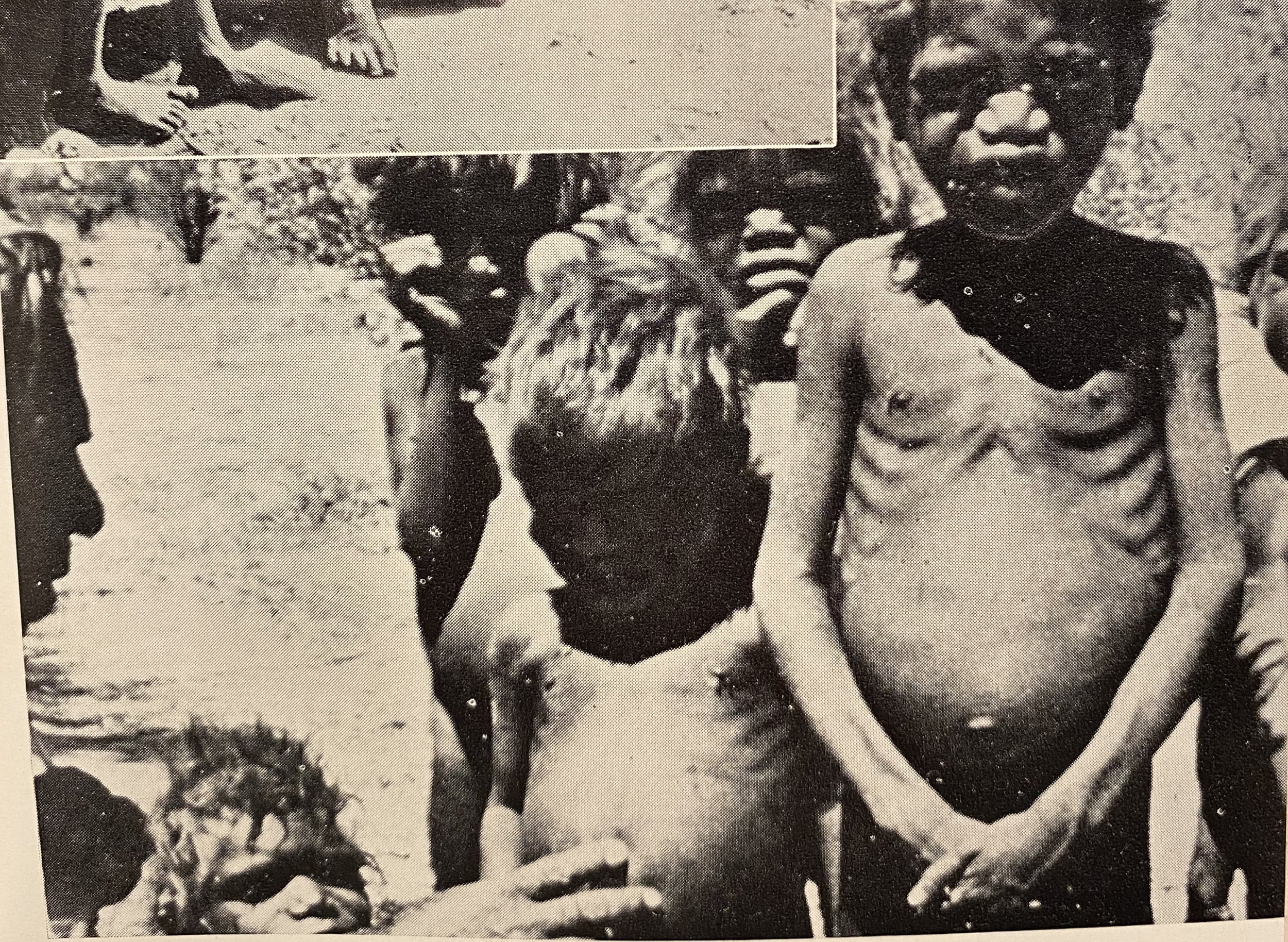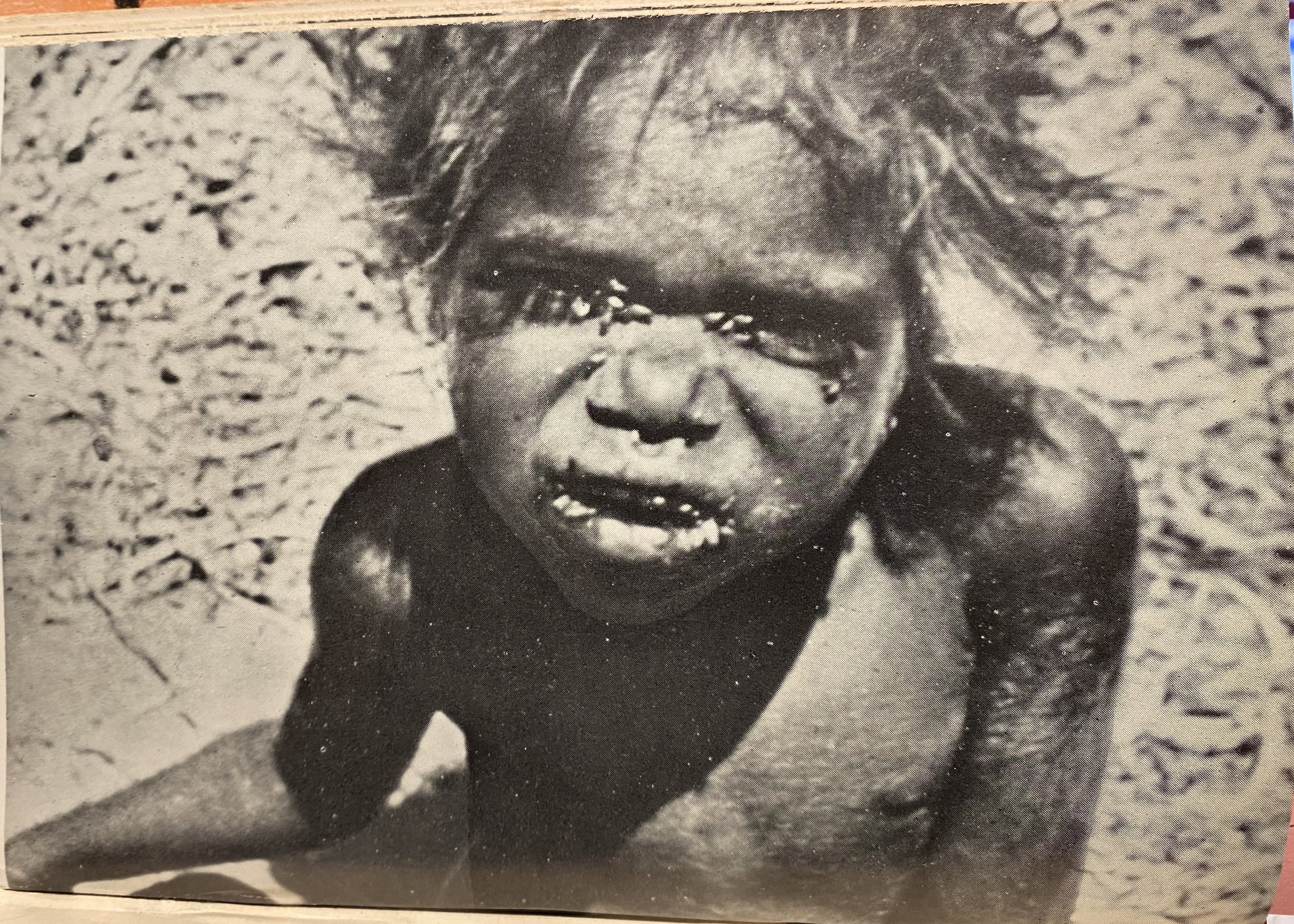Is Alan Joyce 'Just Making Stuff Up'?
Prime Minister Anthony Albanese and QANTAS CEO Alan Joyce joined forces for a media spectacular on Monday 14 Aug 2023. Before an adoring crowd and a medley of celebrities at Sydney Airport, they unveiled three Qantas aircraft painted with the “Yes23” logo in support of an Indigenous Voice to parliament.
Figure 1 - QANTAS CEO Alan Joyce (left) and PM Anthony Albanese at the launch.
As reported by The Age newspaper,
Figures 2A&B - The Age, Qantas takes Voice support to the skies, 14 August 2023
QANTAS has an illustrious history as one of the world’s first airlines, starting as it did in outback Queensland at Winton in the 1920s.
But was it really ‘established with the guidance of First Nations People’?
Or is CEO Joyce ‘just making this up’ on the run, a la Pascoe, as part of the latest fad to ‘Indigenise Australian history?’
Our researchers did find that a month previously it had been reported that Joyce had also claimed,
Qantas has a “long history of supporting Indigenous rights,” Joyce said, noting that in the 1920s the Indigenous community had helped the early Qantas founders when looking for runways and places to land their aircraft. (Source: 11 July 2023)
Observant readers would notice how in his July statement, ‘Indigenous communities helping Qantas founders find places to land their aircraft’ has morphed, by August’s launch with the PM, into ‘guidance’ in the establishment of Qantas, which implies a much more significant business and administrative role for ‘Indigenous communities.’
Although we have been unable to confirm Joyce’s claim, it is possible that perhaps there were some Aboriginal workers who helped the Qantas founders search for suitable aircraft landing sites [Ed. note: we are tracking down some early books on the history of Qantas to see if we can confirm this - any information from readers would be welcome].
Nevertheless, this claim by Joyce does come across as somewhat patronising. Instead of accepting that any Aboriginal employees or helpers from say, a mission, were just merely doing their jobs as Australian workers, Joyce emphasizes their race.
It makes one wonder that If the Qantas founders had their meals prepared by an accompanying Chinese camp cook during their travels, would Joyce say that Qantas catering was established originally by the Chinese community? We think not, as there would be no virtual signalling dividend for Joyce from that claim.
What does the QANTAS Official History WebSite Say About Its Indigenous Origins?
Readers can check the offical website run by QANTAS that provides the history of the airline’s early years from 1918 to 1938 here.
We could find no reference to Aboriginal people or ‘First Nations’ people anywhere on this 1918-38 webpage, nor indeed on any of the other webpages for the more recent years, that suggest Aboriginal people had any hand in the ‘guidance or establishment’ of QANTAS.
If the contribution or guidance of ‘Indigenous communities was important in the establishment of Qantas, as Joyce claims, why isn’t it mentioned on the official Qantas website?
Instead, from the Qantas website we learn about some of the early ‘white’ founders who provided the ‘guidance that established’ QANTAS.
Figures 3A&B - Excerpts from QANTAS History webpages
Figure 3B
We did however find quite a connection between Aboriginal people and one of the co-founders of QANTAS, Hudson Fysh, as well as QANTAS’s first paying passenger, the pastoralist Alexander Kennedy.
Figure 4 - QANTAS’s first paying customer Alexander Kennedy (in plane) and founder and author Hudson Fysh (right) Source: Author’s book.
As well as being a pilot and co-founder of QANTAS, Hudson Fysh was also the author of the popular 1933 book, Taming the North: The Story of Alexander Kennedy and Other Queensland Pathfinders.
Given the off-hand comments by Qantas CEO Alan Joyce, we suspect that he has not read this book by the founder of his company.
In our opinion, Hudson Fysh and Alexander Kennedy were wonderful pioneers in Australian history, and our country is all the better due to their efforts.
However, it is completely understandable that some Aboriginal people might have a differing view, given that Alexander Kennedy was implicated in several killings of Aboriginal people during the establishment of his pastoral stations [e.g. Massacre of Battle Mountain [Ed. note: the Colonial Massacre Map is not always accurate - reader discretion advised] [ we also note that many of our Aboriginal acquaintances have no problem with flying Qantas today].
The attitude of early Queenslander pioneers like Fysh to Aboriginal society and its people is clearly expressed in his writings.
Similarly, his description of Kennedy’s exploits, details of which he had the opportunity to obtain directly by talking with the still alive Kennedy, show the various attitudes that were current in the late 1800s in Queensland during the interactions between colonial and Aboriginal peoples. [See Further Reading below on historian John Hirst’s discussion of the ethics and morality of the encounter between the colonial and Aboriginal peoples].
It is very surprising to us therefore that Alan Joyce would brag about the importance of ‘guidance’ by First Nations people in the establishment of QANTAS.
Or was Joyce 'just making that up’ on the run, as a bit of virtue signalling to the Aboriginal people in the room?
We have selected a few passages from Fysh’s book to give the reader some flavour of what Fysh and Kennedy had to say about ‘guidance’ from Aboriginal peoples in Queensland’s early history.
Figures 6A - This excerpt (as well as the following pages) is from Taming the North: The Story of Alexander Kennedy and Other Queensland Pathfinders, written by QANTAS Pioneer Hudson Fysh. It is written around the story of the life of QANTAS’s first paying customer, the Qld pastoralist and pioneer Alexander Kennedy
Figure 6B
These passages are illustrative of the conflicts that inevitably developed between some Aboriginal tribes and some pastoralists as they expanded their activities into the new country. This was not a ‘Frontier War’ in an organised military sense, as is promoted by most academics nowadays.
Instead, the encounter between the Aboriginal tribes and the colonial settlers and pastoralists was, as often as not, friendly and mutually beneficial. Many Aboriginal people ‘came in’ to engage and join colonial society as workers or camp residents.
However, many Aborigines were understandably hostile to encroachments onto their traditional lands and the problems that caused with regard to loss of game, fouling of waterholes and disputes with pastoralists and settlers over the killing of stock, theft of the settlers goods, and disputes over women. Violent conflicts often inevitably ensued.
Figure 7 - A Method of aboriginal drinking where a hole is scraped in the sand to act as a filter for the water. Once large numbers of cattle or sheep were introduced, waterholes were frequently quickly fouled, much to the detriment of the local Aboriginal people. (Source: unknown)
Figure 6C - Note: ‘took him’ being Alexander Kennedy
Figure 6D
Figure 6E
Figure 6F
Figure 6G
Figure 6H
Figure 8 - Photograph of burial monument for settlers massacred by Aborigines. (Source: Fysh, H, Taming the North: The Story of Alexander Kennedy and Other Queensland Pathfinders).
CEO Alan Joyce might be surprised to learn that the co-founder of his company was such a writer of ‘daring-do’ exploits of the early pioneers and their native police [see Note 1 in Further Reading below].
Fysh also touched on the now taboo subject of cannibalism in traditional Aboriginal society [see Figures 6F & G above].
Any mention today of the “C”-word [cannibalism] in relation to Aboriginal societies invariably fires up the Left with indignant rage, resulting in great political and social angst for those that dare to mention it, as Pauline Hanson discovered in 1997, with her more morally outraged critics describing her as, ‘Australia’s Hitler’. [Incredibly Professor Tim Flannery ended up being the one to provide some intellectual support for Hanson! - see excerpt here from his 2003 Quarterly Essay].
It does seem strange that Alan Joyce would celebrate what he claims was QANTAS’s original ‘guidance’ by First Nations people, despite the fact that the man they are meant to be ‘guiding’ in the 1920s was musing that a ‘freak blackfellow’s skin’ might be a useful addition to one our museums [see Figure 6F above]
Anyway, some Aboriginal societies did practice cannibalism - anything from taking a little kidney fat for ceremonial reasons, to a hunger for fat [fat being a rare delicacy in the lean-meat environment of Australia], to full body consumption in mourning ceremonies [read Enclosure No 2 here from bottom of page 240], to the eating of flesh in times of severe want [See Further Reading below].
Summary
In our opinion, the press conference by Joyce and Albanese just looks totally non-genuine.
To score some virtue signalling points, Joyce appears to panders to the Voice proposal by just making up, or greatly embellishing, a story that QANTAS was established with the ‘guidance of First Nations people.’
Joyce offers no firm evidence for his claim, and to date we have found no involvement of so-called ‘First Nations people’ in the founding of QANTAS [Ed. note: we are sourcing some more books and will advise].
Instead, we found that the pioneers involved in the early days of QANTAS had views on Aborigines that today would not be acceptable, although they were typical of their times.
To many of us, the announcement that Qatar Airways failed in its bid to get approval to increase its number of tourist fights into Australia, the day before the QANTAS Yes23 announcement, smacks of political interference.
Some Australians might be speculating that perhaps our PM rang Alan Joyce and said words to the effect of,
“Hey Joycey me old mucker, how about you endorsing the YES campaign, giving our YES-crew free flights around the country as they campaign, in exchange for the government knocking back Qatar’s bid for more flights?”
“Yes, Prime Minister” , Albo hears as he hands back the mobile to his PA, feeling pleased with himself as he muses on his free QANTAS flight with his boy down to the AFL’s, new, taxpayer-funded $500M stadium in Hobart for the Opening Yes game.
Many of us are just thinking that a successful YES vote will only open the flood-gates to a new class of self-entitled political elites and their children, spending our taxpayer funds at the behest of the new Aboriginal Aristocracy.
Further Reading
Killings of Settlers and Aborigines
Note 1. Readers should not forget that the vast majority of the killings of Aboriginal people was avidly done by other Aboriginal people, namely the Native Police troopers.
As bad as these killings were, there is a good case to be made that the presence of the Native Police Force was overall a good thing for reducing overall the violence that might have occurred in the settlement of Australia. Having the Native Police Force, most probably lead to less deaths on the colonial frontier than would have otherwise occurred, by establishing at least some law and order in a countryside far removed from the control of the authorities in the cities and towns.
Australia could have just as easily gone down the path of the almost total lawlessness that seemed to reign in some parts of the ‘Wild West’ during the settlement of the USA, with the resultant legacy of massive gun ownership that is such a problem today. But we didnt.
Instead Australia adopted a more regulated form of policing, which obviously had some flaws, but overall was a policy for good. It also allowed for Aborigines themselves to express their own agency and “initiatives towards European society by absorbing themselves into the Native Police forces so as to satisfy their own curiosity, zest for living, choices and creations.” (See Marie Fels on a study of Victoria’s Native Police Force ).
Cannibalism - the “C”-word
Alexander Kennedy is quoted again in a paper, E.G.Heap, B.A., Some Notes on Cannibalism Among Queensland Aborigines, 1824-1900, p28
Figure 9 - Note on Aboriginal Cannibalism. Source: Walter Edmund Roth, Ethnological Studies among the North-West Central Queensland Aborigines, 1897
The realities of life in pre-colonial Australia meant that at times of severe drought, food must have been very short for Aboriginal people.
The pictures below are said to have been taken in the 1940s of Aboriginal children from the Western Desert who were ‘brought-in’ in an emaciated state during a long drought.
In some places in old,-pre-colonial Australia, cannibalism for food must have been adopted by some tribes who found themselves in dire straits, as was the case in many other human groups or societies (eg: during European sieges, Maori wars, famines in China, et al)
How Sorry Can We Be?
Historian John Hirst (1942-2016)
Historian John Hirst wrote a book in 2006, Sense and Nonsense in Australian History. (Black Inc.), which included a chapter entitled, How Sorry Can We Be?
In this chapter, Hirst provides some explanation and understanding for those of us who agonise over the ethics and morality of the inevitable violence that occurs between humans when one clan, tribe, nation or society, settles or invades the lands of another.
The first few pages of the Hirst’s chapter and his concept of the ‘liberal fantasy view of our origins’ (p82) may be particularly useful to some readers in gaining more of an understanding of the debate over the amount of violence (or relative lack of) during the settlement of Australia.
Figure 10 series - Page 80 from John Hirst, How Sorry Can we Be?, from Sense and Nonsense in Australian History. (Black Inc, 2006)
Figure 10B- Page 81 from John Hirst, How Sorry Can we Be?
Figure 10C - Page 82 from John Hirst, How Sorry Can we Be?
Figure 10D - Page 83 : To continue reading the full chapter of How Sorry Can We Be?, Download Whole Chapter pdf here







